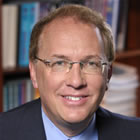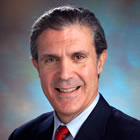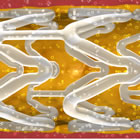|
Abbott's Absorb Bioresorbable Scaffold Completes Enrollment in 3 Pivotal Clinical Trials
The "Disappearing Stent" Now Looks for Approval in the U.S., Japan, and China, Which Comprise 50% of the International Stent Market
|
 |
April 10, 2014 -- Eight years ago Abbott Vascular initiated its first-in-man ABSORB Cohort A trial to examine whether a bioresorbable stent was feasible for the treatment of coronary artery disease.
Thirty patients were enrolled.
After results from an additional 100 patients were positive, the device received the European CE Mark of approval in 2011, although it was 18 months before the company ramped up sufficient manufacturing capacity for an international launch of the device.
In the interim, Abbott changed the description of the device from "stent" to "scaffold" (perhaps influenced by Angioplasty.Org's 2009 blog post, "Is The Scaffolding Coming Down?" - we'd like to think so, anyway). Certainly it would be difficult to call the device a "stent," since after 2-3 years it no longer exists: it's disappeared entirely! So the correct name is the Absorb™ Bioresorbable Vascular Scaffold (acronym "BVS").
Today, Abbott announced that it has completed enrollment of not one, but three pivotal clinical trials to support approval of the Absorb BVS in the United States, Japan, and China, three countries that comprise 50% of the global market for stents. The trials pit the Absorb Bioresorbable Vascular Scaffold against Abbott's flagship everolimus-eluting XIENCE stent in almost 3,000 patients worldwide. The Absorb BVS also elutes everolimus.
One of the primary theoretical advantages of this device is that after the BVS has been resorbed, the coronary artery is returned to its natural state: vasomotion is completely normal and not impeded by a metallic "cage." And once the BVS has disappeared, the concern over stent thrombosis and restenosis also disappears.
While the concept is revolutionary, there remain questions as to whether this device, which is somewhat thicker than several third generation DES, can be delivered to challenging vessels that are very tortuous or narrow. Moreover, the current crop of drug-eluting stents have such low MACE events, including stent thrombosis, that the BVS will need to show a significant advantage. However, the concept of the disappearing scaffold is intriguing and may indeed be a major addition to the interventional cardiologist's armamentarium.
Following is an animation, supplied by Abbott, depicting how the resorbable device works:
Video not loaded
This morning's press release from Abbott follows:

Abbott Completes Enrollment of Absorb Randomized Clinical Trials in the United States, Japan and China
- First-of-its-Kind Dissolving Medical Device Being Evaluated in People with Blocked Heart Vessels
- Comprehensive Clinical Trial Program Demonstrates Abbott's Global Leadership in Bioresorbable Vascular Scaffold Technology
- Enrollment Completions Mark Significant Progress Toward Bringing Absorb to Countries Representing More Than 50 Percent of the World's Heart Stent Market
April 10, 2014 -- Abbott Park, Illinois -- Abbott today announced it has completed enrollment of three clinical trials to support approvals of the company's revolutionary Absorb Bioresorbable Vascular Scaffold (BVS) in the United States, Japan and China. Combined, the U.S., Japan and China account for more than 50 percent of the world's heart stent market. Abbott leads the market in developing and commercializing a drug eluting BVS for blocked heart vessels. Absorb received CE Mark in 2011 and is available in more than 60 countries around the world.

Dr. Charles A. Simonton |
"The randomized clinical trials for Absorb demonstrate Abbott's commitment to provide the highest level of clinical evidence possible to assess Absorb compared to metallic drug eluting stents the current standard of care," said Charles A. Simonton, M.D., FACC, FSCAI, divisional vice president, Medical Affairs, and chief medical officer, Abbott Vascular. "We look forward to evaluating the results of these trials, which we intend to submit to support regulatory approvals of the device."
Absorb works by opening a blocked vessel and restoring blood flow to the heart similar to a metallic stent; however, unlike a metallic stent, Absorb dissolves over time, potentially leaving behind a more flexible vessel because it is free from a permanent metallic stent which cages the vessel.[1],[2] Absorb is referred to as a scaffold to indicate that it is a temporary structure, unlike a metallic stent, which is a permanent implant. Absorb is made of polylactide, a naturally dissolvable material that is commonly used in medical implants such as dissolving sutures.
The ABSORB III clinical trial, which enrolled approximately 2,000 people in the United States, will evaluate the potential benefits of Absorb in people with coronary artery disease, a narrowing of one or more arteries that supply blood to the heart. The primary endpoint of ABSORB III is target lesion failure (TLF), a combined measure of the safety and effectiveness of Absorb in comparison to the company's XIENCE family of drug eluting stents at one year.

Dr. Gregg Stone |
"The rapid completion of enrollment in the Absorb randomized trials is a testament to the interest among doctors and patients in advancing new options to treat heart disease," said Gregg Stone, M.D., FACC, FSCAI, director, cardiovascular research and education, Center for Interventional Vascular Therapy, Columbia University Medical Center, New York-Presbyterian Hospital. "Absorb represents an entirely new approach to helping people with heart disease by doing the job of a metallic stent, but then disappearing after its work is done, giving people the opportunity to live their lives free of a permanent metallic device implanted in their arteries."
The ABSORB Japan and ABSORB China trials enrolled approximately 400 people each, and the primary endpoint is TLF at one year and late loss at one year, respectively, in comparison to the XIENCE family of drug eluting stents. The ABSORB II trial enrolled approximately 500 people, mostly in Europe, and one-year clinical results are anticipated later this year.

Dr. Dean Kereiakes |
"The medical community eagerly awaits the results of the randomized trials for Absorb," said Dean Kereiakes, M.D., FACC, FSCAI, medical director of The Christ Hospital Heart & Vascular Center and the Lindner Research Center in Cincinnati, and professor of clinical medicine at Ohio State University. "We have made tremendous progress in interventional cardiology with the advances in metallic stents. A device that could provide similar benefits but not leave behind a permanent implant has the potential to transform the way coronary artery disease is treated."
About the Absorb Bioresorbable Vascular Scaffold
Abbott's BVS delivers everolimus, an anti-proliferative drug used in Abbott's XIENCE coronary stent systems. Everolimus was developed by Novartis Pharma AG and is licensed to Abbott by Novartis for use on its drug eluting vascular devices. Everolimus has been shown to inhibit in-stent neointimal growth in the coronary vessels following stent or scaffold implantation.
Absorb is an investigational device, limited by United States law to investigational use and is not approved or available for sale in the United States. Absorb is authorized for sale in CE Mark countries. Absorb is available in Europe, the Middle East, parts of Latin America, and parts of Asia Pacific, including India.
About Abbott Vascular
Abbott Vascular is the world's leader in drug eluting stents. Abbott Vascular has an industry-leading pipeline and a comprehensive portfolio of market-leading products for cardiac and vascular care, including products for coronary artery disease, vessel closure, endovascular disease and structural heart disease.
About Abbott
Abbott (NYSE: ABT) is a global healthcare company devoted to improving life through the development of products and technologies that span the breadth of healthcare. With a portfolio of leading, science-based offerings in diagnostics, medical devices, nutritionals and branded generic pharmaceuticals, Abbott serves people in more than 150 countries and employs approximately 69,000 people.
Visit Abbott at www.abbott.com and connect with us on Twitter at @AbbottNews.
[1] Absorb completely dissolves except for two pairs of tiny metallic markers, which help guide placement and remain in the artery to enable a physician to see where the device was placed
[2] Preliminary evidence suggests that natural vessel function is possible and may improve long term outcomes. Absorb is a trademark of the Abbott Group of Companies
Reported by Burt Cohen, April 10, 2014 |




